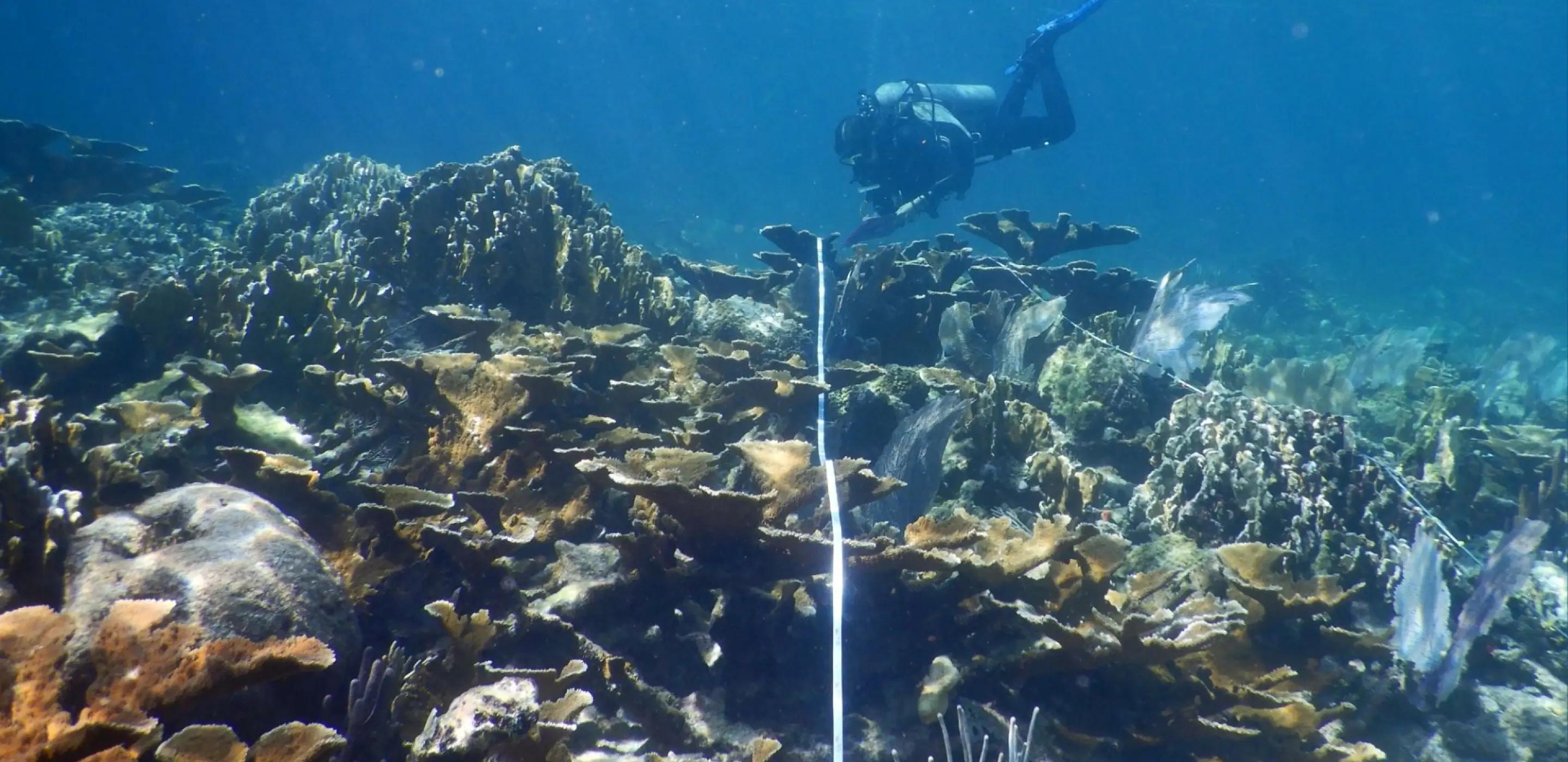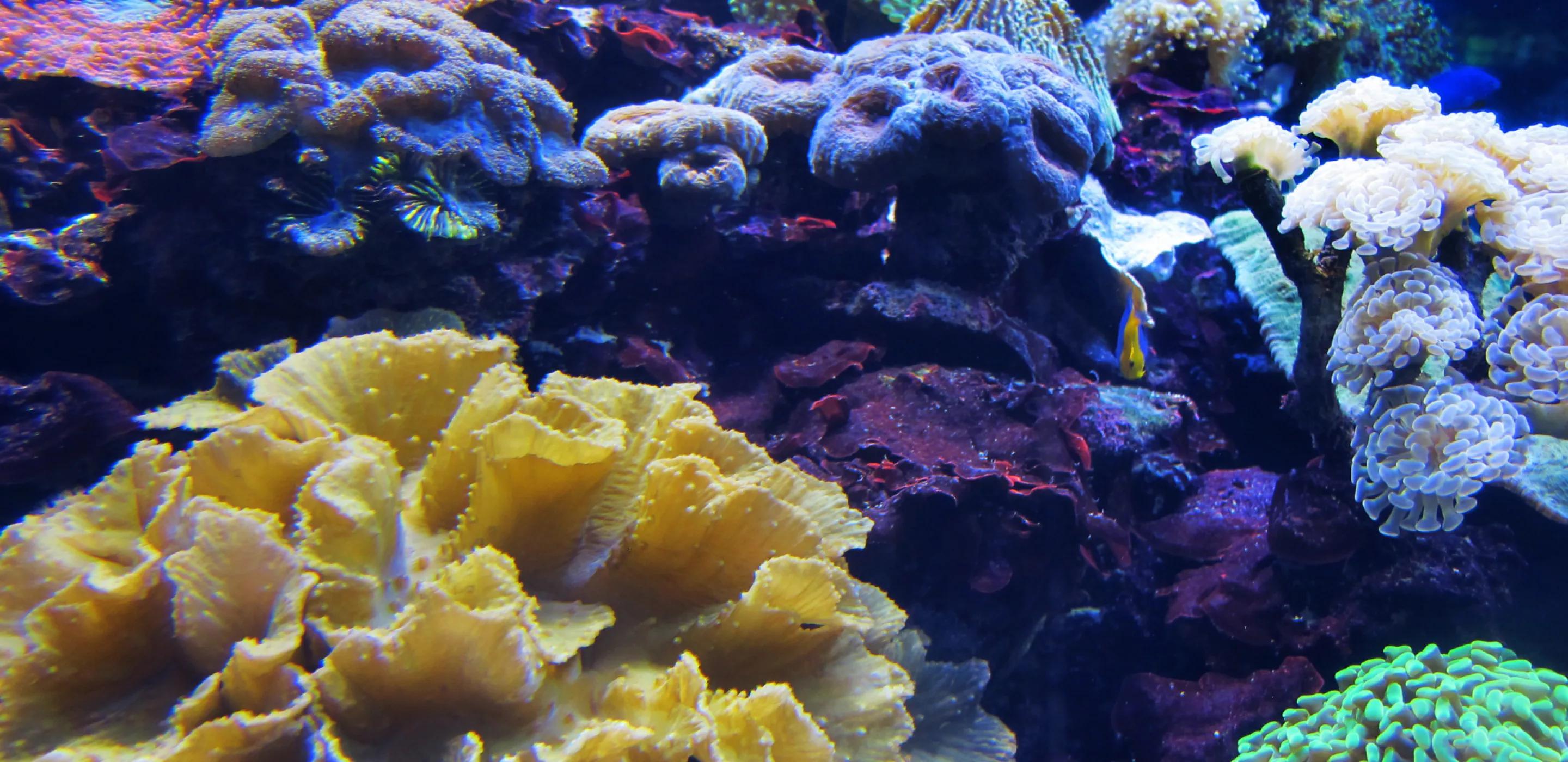GFCR Coalition Action for Coral: 2024 in Review
In 2024, theGlobal Fund for Coral Reefs(GFCR) coalition partners progressed in the mission to support resilience-based efforts for three million hectares of coral reefs and leverage up to $3 billion in public and private finance by 2030. Through public-private partnerships and a robust innovative finance strategy, the GFCR is driving impactful implementation and investments across more than 20 vulnerable coastal nations to safeguard coral reefs with the highest potential for surviving climate change–known as coral refugia.
As we approach the halfway mark to 2030, GFCR has established a growing demonstration portfolio, supporting conservation targets through ocean-positive businesses and financial vehicles, positioning its leading role in protecting coral reefs globally. But GFCR progress comes against the backdrop of a devastating year for coral as the fourth and most extensive global coral bleaching event affected nearly 80% of the world’s coral reefs, amplifying the need for urgent, resilience-based strategies and investments.
2024 Conservation & Investment Achievements
With increasing urgency, GFCR expanded operations across more than 20 countries, prioritizing critical ‘coral refugia’ sites. Over the year, GFCR committed, invested, and leveraged over $100 million in public and private funding to strengthen resilience in developing coral nations, including through reef-positive business solutions and financing vehicles.
This year also marked the launch of two major country blended finance initiatives:
- In Egypt, a blended finance initiative supported by USAID and UNDP is mobilizing up to $50 million for sustainable blue economy transitions and conservation in the Red Sea.
- In the Seychelles, the Ocean's Resolve program–a multiyear transformative initiative–led by SeyCCAT (Seychelles Conservation and Climate Adaptation Trust), focuses on advancing blue economy sectors that conserve and sustainably utilize marine ecosystems.
- The Blue Finance Facility: GFCR facilitated the launch of an impact loan vehicle with a $35 million target-size, spearheaded by Blue Alliance Marine Protected Areas, to support reef-positive businesses within Marine Protected Areas (MPAs) across the Philippines, Indonesia, and Tanzania. With early-stage capital and design support from GFCR, the facility has attracted private investment from partners such as BNP Paribas. This initiative will help protect 1.8 million hectares of coral reef ecosystems through strengthening of MPA management and by addressing key degradation drivers.
- In October, the Seaflower Fund was launched, marking the first long-term commitment to building resilience for 77% of Colombia’s coral reefs. The initiative protects over 407 fish species, 48 hard coral species, 54 soft coral species, and benefits 70,000 community members. The Seaflower Fund holds an endowment and sinking accounts with a 100-year vision in a multi-donor scheme.
GFCR also expanded its implementation through additional support for the Mesoamerican Region,Indonesia, the Philippines, and Pemba Island (Tanzania). These initiatives focus on reef-positive business solutions including ecotourism, sustainable aquaculture, and community-based fisheries, protecting key coral refugia while boosting the resilience of coastal communities.
GFCR’s achievements in 2024 also included a Debt-for-Nature Swap in Indonesia. This groundbreaking agreement reduced Indonesia’s debt payments to the United States by $35 million over nine years–a first for coral reefs, establishing a conservation fund for coral reef protection in the Bird’s Head Seascape, Lesser Sunda, and Banda Seascape. Additionally in Indonesia, GFCR supported the establishment of the Raja Ampat Mooring System (RAMS) to prevent anchor damage in coral reef-rich MPAs. This sustainable tourism initiative involves mooring fees that fund infrastructure maintenance and MPA management, while fostering local economic opportunities.
The GFCR-supported Blue Alliance-led programme in the Philippines expanded to new MPAs in Palawan and South Mindoro, reducing illegal fishing across 900,000 ha of protected areas. Six reef-positive businesses were established in community-based aquaculture, fisheries, ecotourism, and blue carbon, creating sustainable incomes, with three already generating revenue.In partnership with AXA Climate and Humanity Insured, Blue Alliance has also renewed parametric insurance for 88 MPAs in the Philippines.
The GFCR Micronesia regional programme, led by The Nature Conservancy (TNC),strengthened the Micronesia Challenge through innovative financial solutions and sustainable livelihoods. The programme launched the Blue Economy Accelerator Fund, partnering with the Marshall Islands Development Bank, the Federated States of Micronesia Development Bank, and TNC.This fund provides investment capital and technical expertise to reef-positive micro, small, and medium enterprises (MSMEs) in sectors including aquaculture and waste management. Looking ahead the programme aims to launch the 2030 Livelihood Accelerator, enabling use of monitoring data and identification of heat-tolerant corals to inform and establish sustainable financing mechanisms across the regional states.
In Papua New Guinea, the GFCR-supported Blue Economy Enterprise Incubation Facility (BE-EIF)awarded grants and mentorship to six pioneering enterprises in sustainable tourism, marine conservation education, and community-based resource management. Supported by UNDP, the initiative focuses on enhancing reef-positive livelihoods, promoting sustainable practices, and conserving marine ecosystems in Kimbe Bay.
The GFCR Equity Fund, managed by Pegasus Capital Advisors, drove impactful investments, including new deals in Sri Lanka and Brazil to support enterprises that enhance coral reef resilience.
- Brazil: A strategic investment of up to US$50 million was announced for Agrion Agrisolutions, a Brazil-based producer of eco-friendly organo-mineral fertilizers. This initiative aims to reduce reliance on chemical inputs, minimizing nutrient runoff into waterways—a critical threat to coastal marine ecosystems. The investment is expected to improve local crop yields while strengthening the resilience of Brazil's Northeastern coral reef ecosystems.
- Sri Lanka:The Equity Fund invested in Oceanpick, Sri Lanka's first open-ocean fish farming enterprise, to promote sustainable aquaculture practices that benefit marine ecosystems and coastal communities.
The GFCR Equity Fund also partnered with Parley for the Oceans to help address marine plastic pollution affecting coral reef ecosystems. This collaboration focuses on intercepting plastic waste before it reaches coral reefs, upcycling materials, and fostering eco-innovative solutions. By combining Parley’s upcycling expertise with GFCR's reef conservation lens, the partnership seeks to alleviate plastic-induced damage on reefs.
In Mexico, GFCR collaborated with local partners, including Mesoamerican Reef Fund - MAR Fund, to scale innovative enterprises like Carbonwave, which uses GFCR equity funding to address sargassum blooms. Broader funding in the MAR region supported growth of a robust pipeline including more than 20 reef-positive market initiatives spanning sectors including aquaculture, sustainable fishing, blue carbon credits, and seaweed farming. One programme highlight this year includes the securing of US$500,000 in private capital for Maritime Procurement Services (MPS), a Mexican company tackling shipping waste. With support from partner Viwala, the funding influx will strengthen waste treatment plan operations to reduce pressures on marine ecosystems in Cozumel, Mexico, the Caribbean’s busiest cruise port. Further, the Royal Mayan Shrimp Farms received additional investment of US$3.5M as a result of MAR+Invest’s Transactional Services support, enabling sustainable transition toward zero effluence.
Mobilising Action Amid Escalating Climate Impacts
In early 2024, GFCR launched its Strategic Plan, establishing a roadmap to enable maximum impact of the GFCR demonstration phase by 2030. The Strategic Plan sets 5 core pathways of action:
- Finance Solutions:Expanding sustainable finance mechanisms to ensure abundant and stable resources dedicated to coral reefs, marine conservation, and reef-positive businesses.
- Ocean-Positive Businesses:Continuing growth of investible reef- and ocean-positive business pipelines that transform coastal economies and communities toward sustainability and abundance.
- National Investment Ecosystems:Fostering an enabling environment at the national level to scale and replicate reef-positive business and sustainable finance.
- Knowledge, Learning & Impact Cycle: Creating a virtuouscycle of knowledge and learning to influence effective investment and policy choices.
- Global Ocean Finance & Policy Shift:Mainstreaming blended and innovative finance approaches, strengthening institutions, and leveraging GFCR’s coalition to transform ocean finance and policy.
Following the Strategic Plan establishment,GFCR initiated its final capitalisation round, setting a milestone target of raising an additional US$150 million by the UN Ocean Conference in 2025.This initiative was unveiled at the UN Biodiversity Summit (CBD COP16) in Cali, Colombia, where the urgency to combat coral reef extinction took center stage.Global champions of coral reef action, including state and UN leaders stepped up urgent calls to action in support of GFCR capitalisation.
Early pledges came from theUnited Kingdom, Germany, and France, as well as new coalition members, the UBS Optimus Foundation and New Zealand, which made a notable commitment of US$10 million.
Continued funding contributions from philanthropic and state partners, including Canada, the United States, Builders Initiative, Bloomberg Philanthropies, and ICONIQ Ocean Co-Lab, further enabled a year marked by expanded implementation.
Throughout the year, strategic partnerships were also instrumental in mobilizing action for coral reef conservation. In particular, the joint efforts of GFCR and the International Coral Reef Initiative (ICRI) in 2024 spotlighted a unified response to the escalating threats posed by climate change.
In light of the fourth and most extensive global coral bleaching event ever recorded, H.E. AmbassadorPeter Thomson, GFCR and ICRI co-convened an Emergency Session at CBD COP16. This high-profile event amplified the global spotlight on the urgent need for increased funding and coordinated interventions to protect coral reefs.
Road to the Third UN Ocean Conference
Through its robust public-private coalition and pioneering investment strategy,GFCR has established itself as a pivotal force in coral reef conservation. Its early progress includes catalytic support for60 reef-positive businesses and financing facilities enhancing the management of 1.69 million hectares of coral reefs and sustainable finance flows for2.5 million hectares of MPAs.
However, these achievements only mark the beginning. As coral reefs face the specter of functional extinction, far more resources are required to meet the scale of the challenge.
Coral reefs, vital for marine biodiversity and one billion people globally, are at a tipping point. The urgency for bold, coordinated action has never been greater. To meet this challenge, transformative approaches are essential to bridging the gap between ambition and action. Neither governments nor private markets are moving quickly enough to address this crisis at the necessary pace and scale. Recognising this gap, GFCR has been championing a blended finance approach to accelerate the adoption of sustainable solutions essential to preserving at least 10 percent of the remaining coral reefs. By leveraging $3 in funding for every $1 invested, the GFCR demonstrates how innovative financial mechanisms can deliver triple-line impacts, driving ecological, economic and community resilience.
The upcoming UN Ocean Conference, set for June 2025 in Nice, France, represents a critical moment to match financing flow with the need on the ground to prevent a functional collapse of this critical ecosystem. For GFCR, this event will be a strategic milestone to rally public, private, and philanthropic stakeholders toward reef resilience action. Increased financial pledges are essential to achieve GFCR’s ambitious 2030 targets, including protecting more than 10% of coral reefs remaining on Earth and bolstering resilience for millions of coastal communities.
Share on:
Get the latest insights from the GFCR delivered to your inbox.
Sign up to the GFCR newsletter


